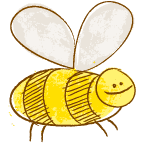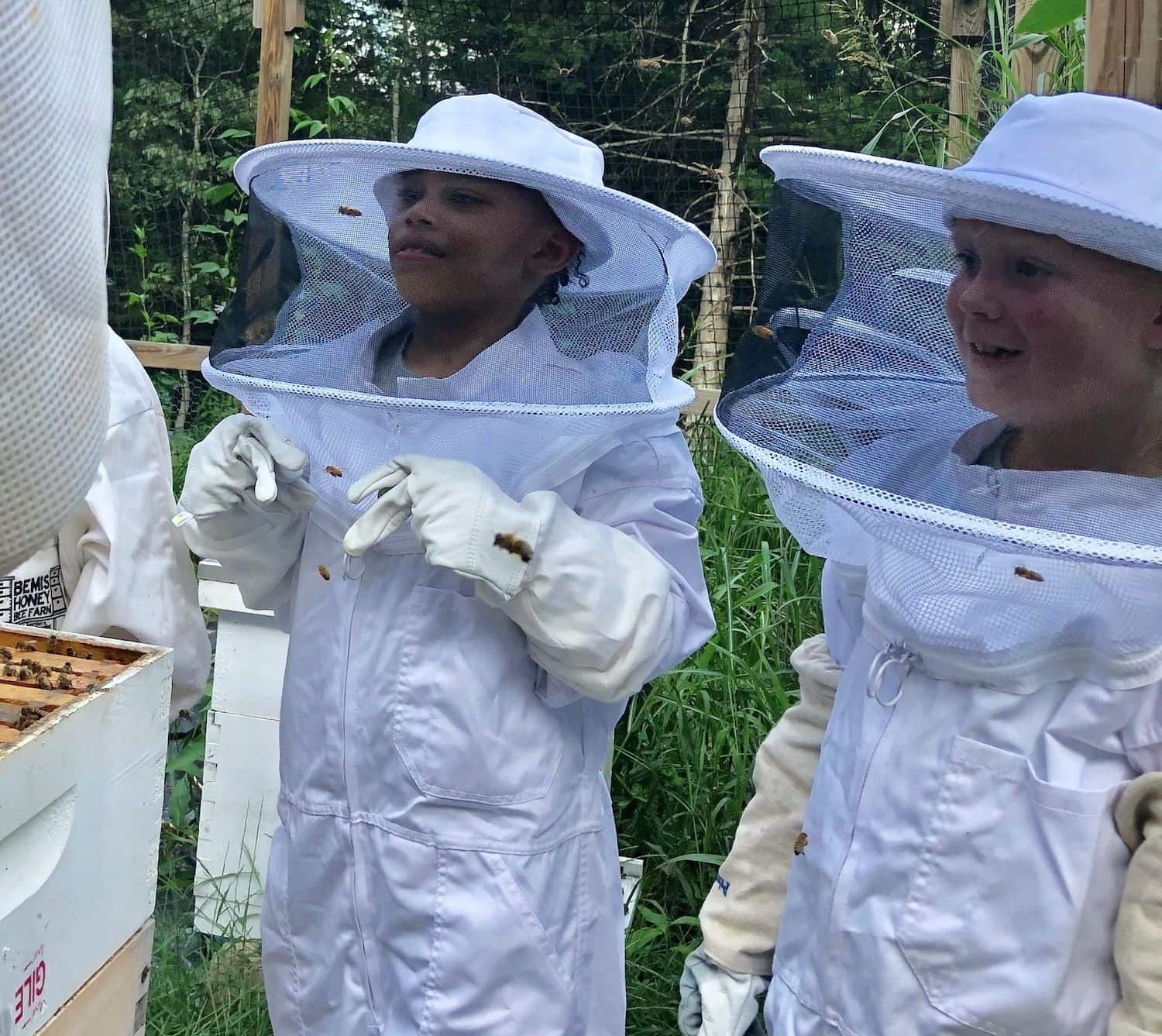“The most amazing aspect of the program is how excited the community is about it.”
Clear Spring School, a 2020 Bee Grant recipient, offers small classes with a focus on outdoor education, life skills, and active citizenship. The school’s beekeeping and the edible gardening program brings to life their project-based, hands-on approach to learning.
AT A GLANCE
Location: Eureka Springs, Arkansas
Year bee program was established: 2017
Number of hives: 3
Managed by: Bethany Smith, a professional beekeeper, small-scale homesteader and owner of Sedge and Bees Apiaries, LLC.
Goals: To help students develop an understanding and appreciation for the role of bees in nature, and to encourage and engage students to protect and nurture wildlife and their habitats.
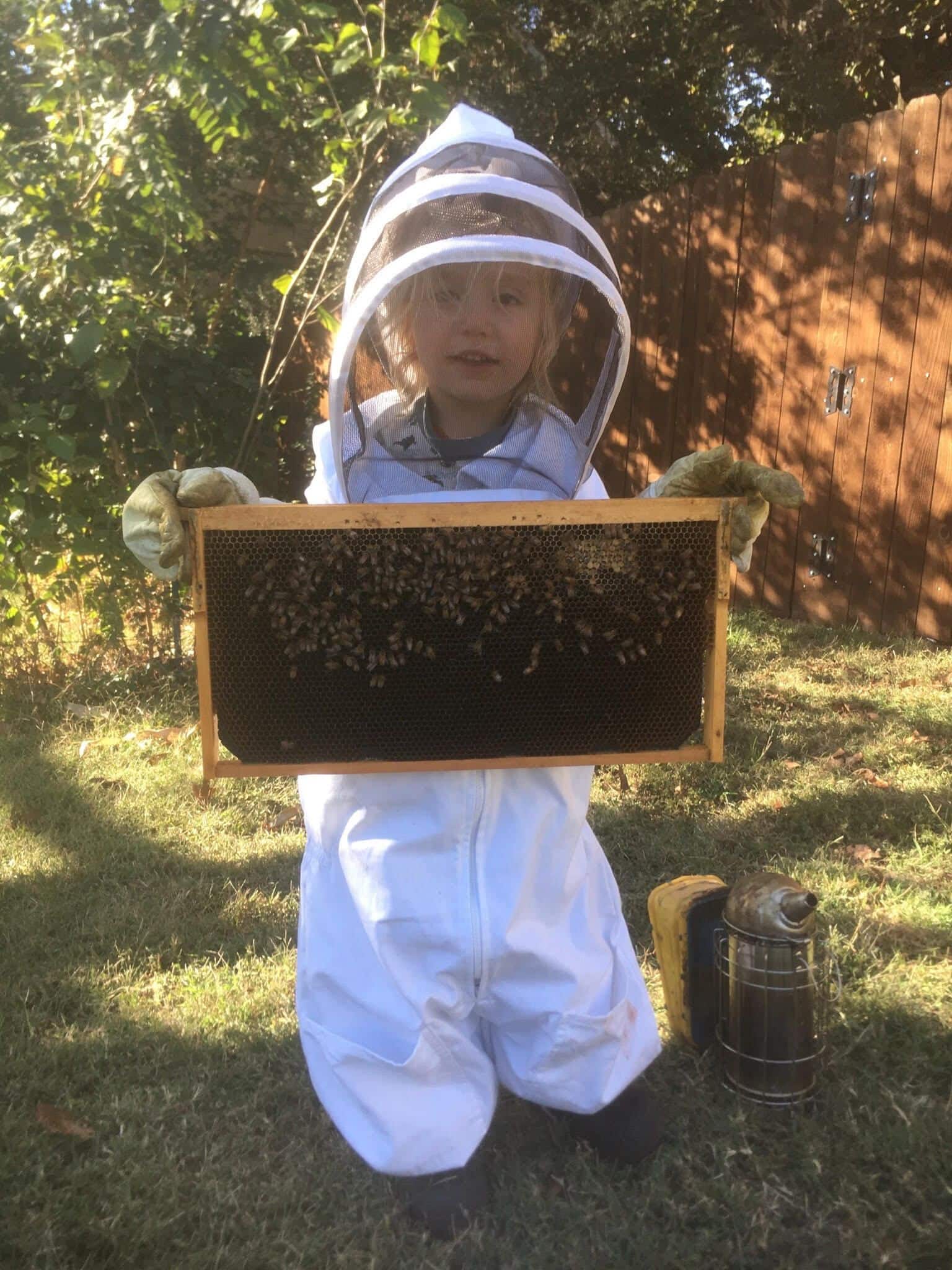
GETTING STARTED
When Clear Spring School began evolving its beekeeping and gardening program, there were several key steps that were addressed:
- Identifying program leaders and getting staff buy-in. The school took a close look at how responsibilities would be divided and who would manage the program. They also made sure teachers were committed to regularly integrating the bees into their classroom curriculum and would make time in the schedule for students to visit the bees on a regular basis.
- Securing funds. With guidance from Bethany Smith, their Bee Mentor/beekeeper, the school was able to identify items needed for hive maintenance and development. Then they applied for several grants to pay for items such as additional beehive kits, bee suits and garden materials.
- Planning for long-term success. By developing a plan for sustainability, the school discovered that the bees needed a more suitable location and a more diverse pollinator garden. (The school has since met those goals.)
THE SETUP
Since establishing their bee program, Clear Spring has expanded their apiary by building a secure 15 ft. X 30 ft. enclosure to protect the bees and garden from threats (such as deer, bears, skunks, and possums). Their program has grown from one hive to three. The thriving garden now produces a variety of pollinator flowers, herbs, raspberries, strawberries, greens, and potatoes, and they also now have hens, a composting system,f and a worm farm.
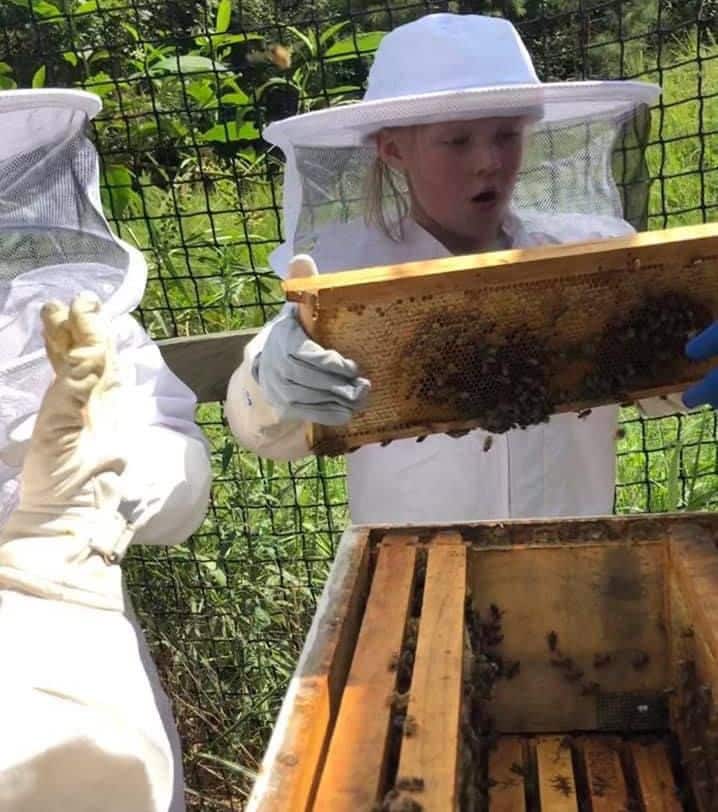
THE MODEL
As an independent progressive school, Clear Spring follows a student-centered experiential learning model. Students learn concepts in multiple ways — through discovery and questioning, investigation and exploration, followed by reflection and reevaluation.
All Clear Spring students from K through 12 work directly with the bees and in the garden. These ongoing hands-on experiences allow students to develop an understanding of how the garden space, the worm farm, and hens are an integral part of the bees’ habitat.
Because of the flexible nature of the school, teachers can adapt curriculum and connect experiences in the garden with the students’ understanding of science, the environment, nutrition, math, and the language arts through academic activities such as garden journals, calculating the amount of soil needed for a new bed, and examining plants and soil under a microscope.
This approach allows the beekeeping and gardening program to become central to students’ curriculum at different times of the school year as the seasons allow. In fact, the school is extending its school year through the month of June because much of the bee work takes place in the summer.
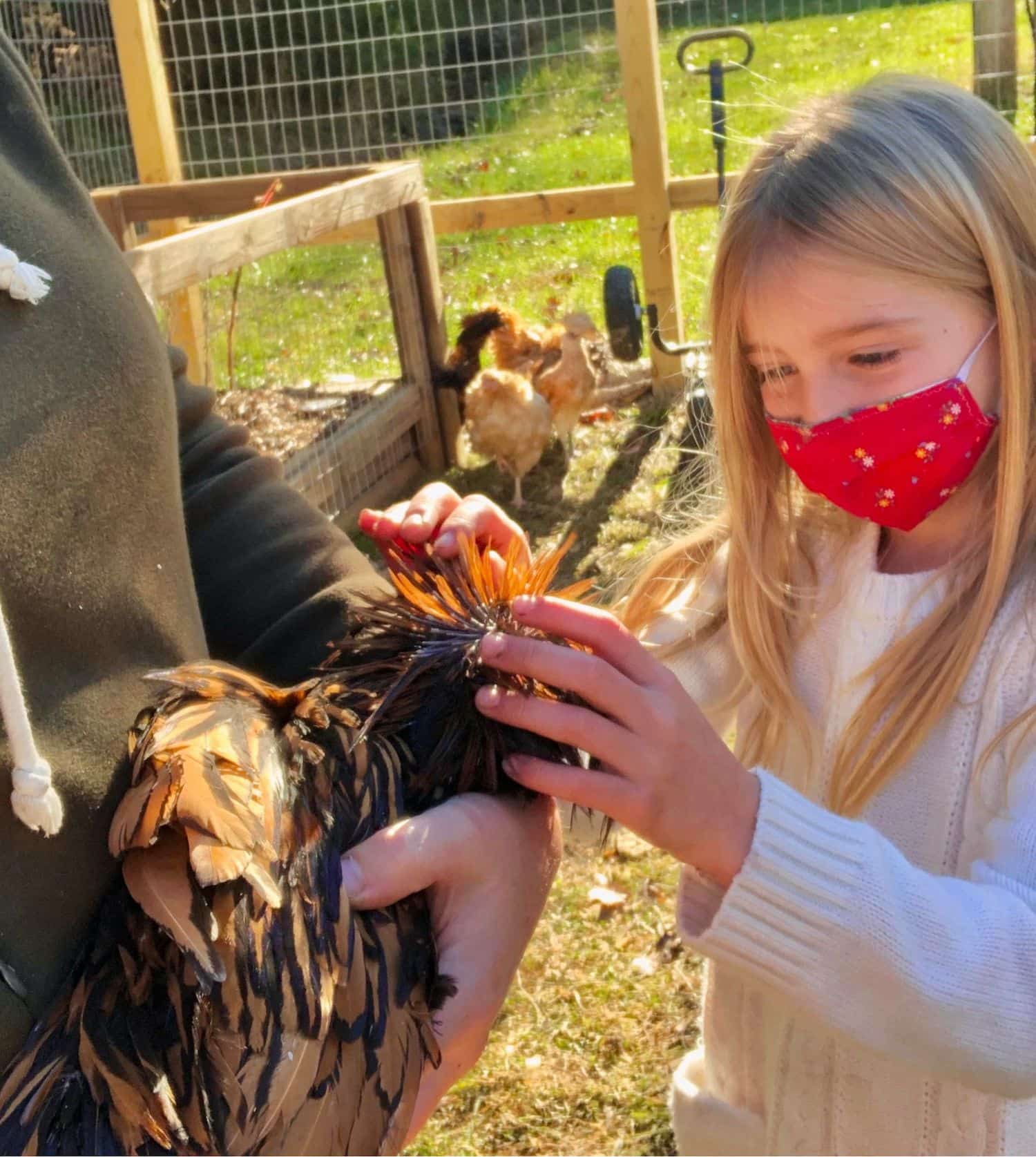
FUNDING
Clear Spring secures funding to support and advance the beekeeping and gardening program through a variety of ways:
In-kind donations: The school publicizes the bee program online through social media and local media coverage, which generates interest and support for the school. They have received a large number of in-kind gifts for the garden and bees including tools, a composter and volunteer labor for building the new enclosure and hen house.
Fundraisers and grants: They have had two small online fundraisers for the bee program this school year, which along with grants have supplied compost, plantings, additional bee boxes and bee suits.
Honey sales: Clear Spring has sold honey for two years in a row, and now community members call to ask if there is honey available for sale. The school has also used the honey as gifts for donors and supporters.
Upcoming opportunities: As the school’s bee population grows and the school splits the hives, they plan to sell bee colonies too.
COMMUNITY SUPPORT
Clear Spring credits help from within the school community and the local community at large as being instrumental in evolving the bee and gardening program.
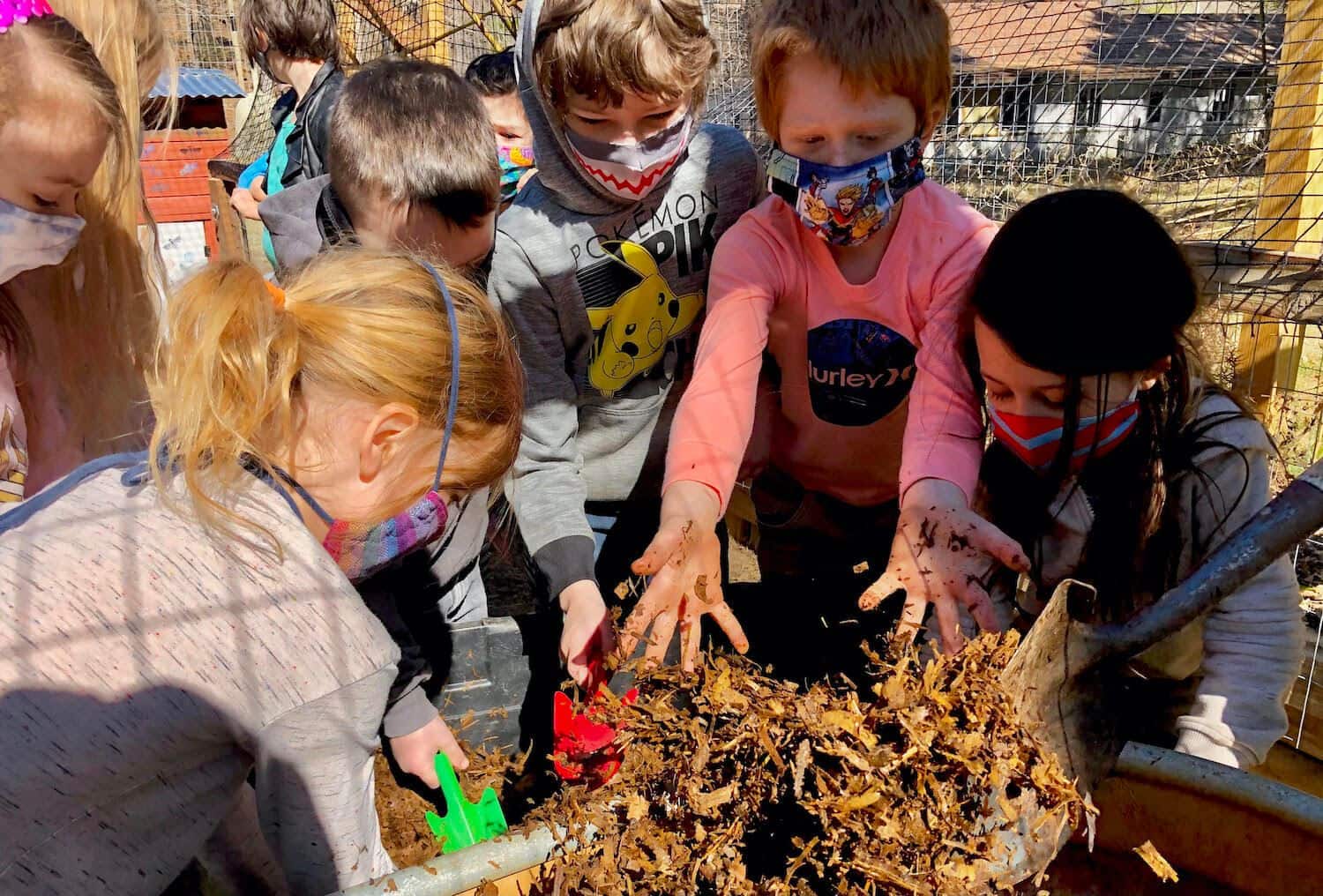
School community.
- The school’s Bee Mentor Bethany Smith directs the beekeeping and edible garden program. As a parent with a child at Clear Spring, Bethany originally volunteered to advise and help the school maintain its first beehive. Ultimately, her dedication to the school paired with her expertise breathed new life into the bee program and helped the Clear Spring greatly grow the program.
- Ginny Garber, an upper elementary teacher, has been involved in the program from the early stages and invests many volunteer hours in the maintenance of the bees and garden. In addition, she set up a bee library in her classroom where students can research and learn more about bees.
Community at large.
Creating strong partnerships with beekeepers and pollinator experts has been an important component of the program’s success. A local nursery, Bear Creek Nursery & Landscaping, has also provided support with garden and planting needs during the past year.
“Our Bee Mentor’s commitment to the school and her expertise in beekeeping created a renewed energy in the bee program and has developed into an invaluable partnership for the school.”
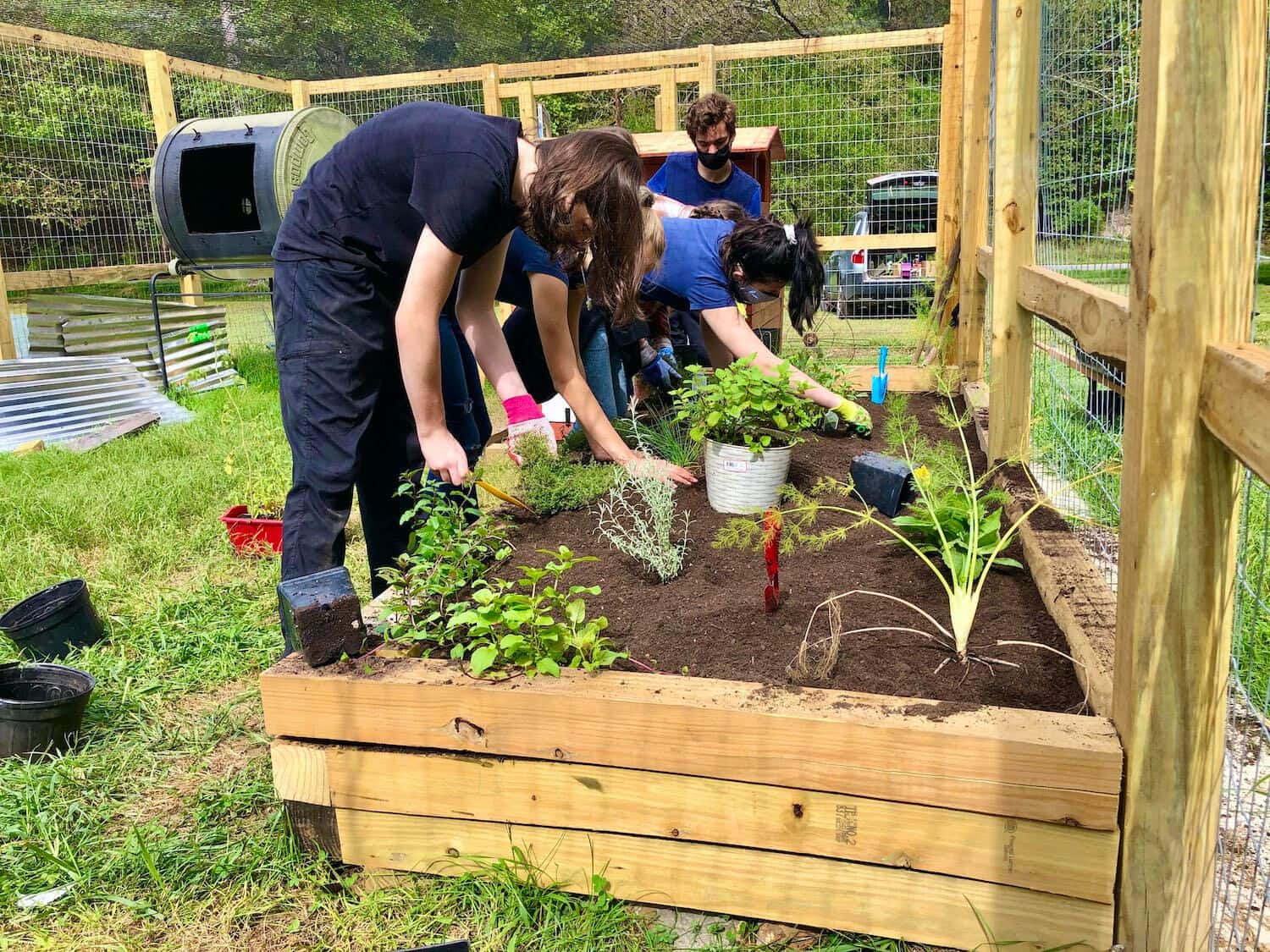
DISCOVERIES
The school’s Director of Development Dawn Ward points out how the community continually responds to the school’s progress through social media. In addition, the new location of the beehives and garden is more visible and has created a genuine interest from the surrounding community and is credited with increasing support and donations by volunteers and sponsors.
LOOKING AHEAD
In the near future, Clear Spring will add more edible plants to the garden and at least one additional beehive. They are also continuing to work on their long-range sustainability plan, which now includes a greenhouse, additional garden space, and solar-powered irrigation.
